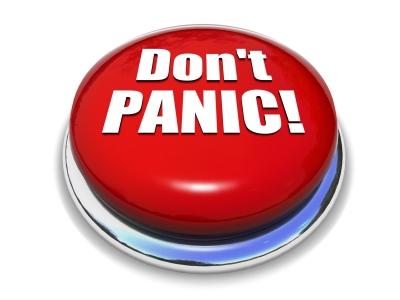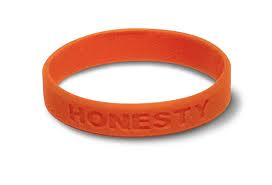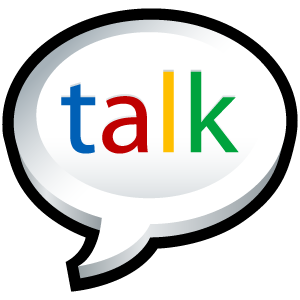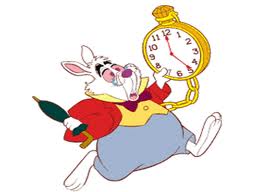Posted on 25 November 2020 Comments (0)
Tags: 2020 Presence, Attitude, Behaviors, Brand Impact, Business Etiquette, Business Social Etiquette, Career Builders, communication, Compassion, Confidence, Confidence Builders, Humor, Visual Presence
 Humor goes a long way towards helping to relax difficult situations and to put everyone at ease. I am by nature a serious person, but I find adding a dash of humor makes the day and a meeting easier. Humor is not always about telling jokes; it is also smiling and looking at the lighter side of things. A laugh once a day makes life a lot easier. “Humor is mankind’s greatest blessing,” said author Mark Twain.
Humor goes a long way towards helping to relax difficult situations and to put everyone at ease. I am by nature a serious person, but I find adding a dash of humor makes the day and a meeting easier. Humor is not always about telling jokes; it is also smiling and looking at the lighter side of things. A laugh once a day makes life a lot easier. “Humor is mankind’s greatest blessing,” said author Mark Twain.
 During the pandemic, it is proper etiquette to politely refuse an invitation if masks will not be worn. Ask the hosts before the event if individuals will be required to wear a mask. If masks are not required, there is no need to say you will not be attending due to the lack of masks. Politely state that you will not be able to attend. If they ask why, it is your personal decision whether to let them know why you will not be attending. It is important to respect others and respect how one feels about the wearing of masks.
During the pandemic, it is proper etiquette to politely refuse an invitation if masks will not be worn. Ask the hosts before the event if individuals will be required to wear a mask. If masks are not required, there is no need to say you will not be attending due to the lack of masks. Politely state that you will not be able to attend. If they ask why, it is your personal decision whether to let them know why you will not be attending. It is important to respect others and respect how one feels about the wearing of masks.
 In the middle of a global pandemic, new etiquette rules must be considered. One must be aware of local guidelines as to the number of people allowed at gatherings (currently fifty people or fewer in Illinois). Always indicate on the invitation that wearing masks and social distancing should be honored by attendees. This means a mask is required and attendees must stay six feet apart. Offer masks to those who attend without a mask and indicate, in a non-confrontational manner, that masks must be worn. If someone chooses to not wear a mask, let them know it is for their safety and the safety of others and they will not be able to participate without a mask.
In the middle of a global pandemic, new etiquette rules must be considered. One must be aware of local guidelines as to the number of people allowed at gatherings (currently fifty people or fewer in Illinois). Always indicate on the invitation that wearing masks and social distancing should be honored by attendees. This means a mask is required and attendees must stay six feet apart. Offer masks to those who attend without a mask and indicate, in a non-confrontational manner, that masks must be worn. If someone chooses to not wear a mask, let them know it is for their safety and the safety of others and they will not be able to participate without a mask.
 A cover letter for a resume is a hook that captures the reader’s interest. The letter should encourage the reader to want to review your resume, to go through the information about you, and to add your name to the top of the list for an interview. A cover letter should consolidate your background, highlight key strengths, offer career goals and value-added propositions, and illustrate your positive personal qualities. A cover letter helps orient the reader before looking at your resume. It is the reader’s first impression of you—and you want that impression to be a good one.
A cover letter for a resume is a hook that captures the reader’s interest. The letter should encourage the reader to want to review your resume, to go through the information about you, and to add your name to the top of the list for an interview. A cover letter should consolidate your background, highlight key strengths, offer career goals and value-added propositions, and illustrate your positive personal qualities. A cover letter helps orient the reader before looking at your resume. It is the reader’s first impression of you—and you want that impression to be a good one.
 Below are 7 rules to use that will help ensure a successful conference call:
Below are 7 rules to use that will help ensure a successful conference call:
- Schedule the call with a minimum of one week of notice unless it is an emergency meeting (24 hours or less can be scheduled by telephone or by text depending upon the participants).
- Send a clear agenda and ask for approval or change requests to be submitted within 24 hours of the scheduled meeting date.
- Provide instructions as to the login and the code needed for login.
- Set up clear instructions at the beginning of the call regarding using the mute button.
- Set up guidelines for using the speaker phone setting on the call.
- Confirm all parties are present at the opening of the call. Also confirm the time allotted for the meeting.
- Have a wrap up of the meeting approximately 3-5 minutes before the close of the meeting.
 Business lunches are best left to get to know each other and to begin to build a flow of a relationship. It is a time to set some common goals in an informal way. Some pitfalls to avoid are not checking in with the client regarding their time guidelines, such as the time to meet and the length of time to meet. Be sure to consider where they might like to eat. Choose a place with a relaxing setting, that is quiet enough for a conversation, and can accommodate any dietary considerations they may have. Invitations must have been sent based on their scheduling needs. Conversation is light. Talk business only if the guest brings it up in conversation. Controversial subjects are best avoided.
Business lunches are best left to get to know each other and to begin to build a flow of a relationship. It is a time to set some common goals in an informal way. Some pitfalls to avoid are not checking in with the client regarding their time guidelines, such as the time to meet and the length of time to meet. Be sure to consider where they might like to eat. Choose a place with a relaxing setting, that is quiet enough for a conversation, and can accommodate any dietary considerations they may have. Invitations must have been sent based on their scheduling needs. Conversation is light. Talk business only if the guest brings it up in conversation. Controversial subjects are best avoided.
Posted on 19 November 2019 Comments (0)
Tags: Anna's Posts, Attitude, Behaviors, Brand Impact, Business Social Etiquette, Career, Career Builders, Civility, Coaching, communication, Critical Thinking, Culture, Emtional Intelligence
 Honesty is the best policy—at the right time. Being honest at the wrong time usually leads to friction and hurt feelings. Working with people who feel honesty is the best policy – even in the middle of difficult situations – I have witnessed that it has not always helped their careers. Instead, most often being honest at the wrong time has hurt their chances of upward movement.
Honesty is the best policy—at the right time. Being honest at the wrong time usually leads to friction and hurt feelings. Working with people who feel honesty is the best policy – even in the middle of difficult situations – I have witnessed that it has not always helped their careers. Instead, most often being honest at the wrong time has hurt their chances of upward movement.
 Recently I attended a family function celebration. When some family members were asked to speak, they did not know what to say about the guests of honor. Always be ready to speak at a moment’s notice. Start by either talking about the reason for the event’s occasion (ex. today my parents are celebrating a milestone anniversary) or tell a story that ties into the celebration (ex. we were just looking at their wedding photos together). Wrap up your brief talk with a sentence related to moving forward after the occasion (ex. they have had many beautiful years of marriage, may they have many more ahead of them). Talking for less than a minute is too short; anything more than a minute and a half too long.
Recently I attended a family function celebration. When some family members were asked to speak, they did not know what to say about the guests of honor. Always be ready to speak at a moment’s notice. Start by either talking about the reason for the event’s occasion (ex. today my parents are celebrating a milestone anniversary) or tell a story that ties into the celebration (ex. we were just looking at their wedding photos together). Wrap up your brief talk with a sentence related to moving forward after the occasion (ex. they have had many beautiful years of marriage, may they have many more ahead of them). Talking for less than a minute is too short; anything more than a minute and a half too long.
 Whether attending a business social event or just a personal social event, there are some key rules to follow in order to be a gracious guest:
Whether attending a business social event or just a personal social event, there are some key rules to follow in order to be a gracious guest:
Promptly let the host know whether you are attending the event or not (RSVP).
Let the host know if you are going to be late.
Make the host aware ahead of time if there are certain food allergies or food requirements (ex. vegan or vegetarian) of which they should be aware. (Depending on the situation and event, the host may or may not be able to accommodate food requests.)
Send a thank you gift or note within a week after attending the event.
 Arriving on time or early to a commitment you’ve made is a key element of being a true professional. Recently, an organization I was working with told me that one of their major complaints was about people who were always late—whether to work, meetings, or interviews. Some people think that being late indicates they have high demands on their time (which may be true). However, it shows a lack of respect for the individuals they keep waiting and the time those individuals are wasting while waiting. Being late discounts a person’s professionalism and any capital, they may have previously earned.
Arriving on time or early to a commitment you’ve made is a key element of being a true professional. Recently, an organization I was working with told me that one of their major complaints was about people who were always late—whether to work, meetings, or interviews. Some people think that being late indicates they have high demands on their time (which may be true). However, it shows a lack of respect for the individuals they keep waiting and the time those individuals are wasting while waiting. Being late discounts a person’s professionalism and any capital, they may have previously earned.
 Humor goes a long way towards helping to relax difficult situations and to put everyone at ease. I am by nature a serious person, but I find adding a dash of humor makes the day and a meeting easier. Humor is not always about telling jokes; it is also smiling and looking at the lighter side of things. A laugh once a day makes life a lot easier. “Humor is mankind’s greatest blessing,” said author Mark Twain.
Humor goes a long way towards helping to relax difficult situations and to put everyone at ease. I am by nature a serious person, but I find adding a dash of humor makes the day and a meeting easier. Humor is not always about telling jokes; it is also smiling and looking at the lighter side of things. A laugh once a day makes life a lot easier. “Humor is mankind’s greatest blessing,” said author Mark Twain.

 During the pandemic, it is proper etiquette to politely refuse an invitation if masks will not be worn. Ask the hosts before the event if individuals will be required to wear a mask. If masks are not required, there is no need to say you will not be attending due to the lack of masks. Politely state that you will not be able to attend. If they ask why, it is your personal decision whether to let them know why you will not be attending. It is important to respect others and respect how one feels about the wearing of masks.
During the pandemic, it is proper etiquette to politely refuse an invitation if masks will not be worn. Ask the hosts before the event if individuals will be required to wear a mask. If masks are not required, there is no need to say you will not be attending due to the lack of masks. Politely state that you will not be able to attend. If they ask why, it is your personal decision whether to let them know why you will not be attending. It is important to respect others and respect how one feels about the wearing of masks. In the middle of a global pandemic, new etiquette rules must be considered. One must be aware of local guidelines as to the number of people allowed at gatherings (currently fifty people or fewer in Illinois). Always indicate on the invitation that wearing masks and social distancing should be honored by attendees. This means a mask is required and attendees must stay six feet apart. Offer masks to those who attend without a mask and indicate, in a non-confrontational manner, that masks must be worn. If someone chooses to not wear a mask, let them know it is for their safety and the safety of others and they will not be able to participate without a mask.
In the middle of a global pandemic, new etiquette rules must be considered. One must be aware of local guidelines as to the number of people allowed at gatherings (currently fifty people or fewer in Illinois). Always indicate on the invitation that wearing masks and social distancing should be honored by attendees. This means a mask is required and attendees must stay six feet apart. Offer masks to those who attend without a mask and indicate, in a non-confrontational manner, that masks must be worn. If someone chooses to not wear a mask, let them know it is for their safety and the safety of others and they will not be able to participate without a mask. A cover letter for a resume is a hook that captures the reader’s interest. The letter should encourage the reader to want to review your resume, to go through the information about you, and to add your name to the top of the list for an interview. A cover letter should consolidate your background, highlight key strengths, offer career goals and value-added propositions, and illustrate your positive personal qualities. A cover letter helps orient the reader before looking at your resume. It is the reader’s first impression of you—and you want that impression to be a good one.
A cover letter for a resume is a hook that captures the reader’s interest. The letter should encourage the reader to want to review your resume, to go through the information about you, and to add your name to the top of the list for an interview. A cover letter should consolidate your background, highlight key strengths, offer career goals and value-added propositions, and illustrate your positive personal qualities. A cover letter helps orient the reader before looking at your resume. It is the reader’s first impression of you—and you want that impression to be a good one. Below are 7 rules to use that will help ensure a successful conference call:
Below are 7 rules to use that will help ensure a successful conference call: Business lunches are best left to get to know each other and to begin to build a flow of a relationship. It is a time to set some common goals in an informal way. Some pitfalls to avoid are not checking in with the client regarding their time guidelines, such as the time to meet and the length of time to meet. Be sure to consider where they might like to eat. Choose a place with a relaxing setting, that is quiet enough for a conversation, and can accommodate any dietary considerations they may have. Invitations must have been sent based on their scheduling needs. Conversation is light. Talk business only if the guest brings it up in conversation. Controversial subjects are best avoided.
Business lunches are best left to get to know each other and to begin to build a flow of a relationship. It is a time to set some common goals in an informal way. Some pitfalls to avoid are not checking in with the client regarding their time guidelines, such as the time to meet and the length of time to meet. Be sure to consider where they might like to eat. Choose a place with a relaxing setting, that is quiet enough for a conversation, and can accommodate any dietary considerations they may have. Invitations must have been sent based on their scheduling needs. Conversation is light. Talk business only if the guest brings it up in conversation. Controversial subjects are best avoided. Honesty is the best policy—at the right time. Being honest at the wrong time usually leads to friction and hurt feelings. Working with people who feel honesty is the best policy – even in the middle of difficult situations – I have witnessed that it has not always helped their careers. Instead, most often being honest at the wrong time has hurt their chances of upward movement.
Honesty is the best policy—at the right time. Being honest at the wrong time usually leads to friction and hurt feelings. Working with people who feel honesty is the best policy – even in the middle of difficult situations – I have witnessed that it has not always helped their careers. Instead, most often being honest at the wrong time has hurt their chances of upward movement. Recently I attended a family function celebration. When some family members were asked to speak, they did not know what to say about the guests of honor. Always be ready to speak at a moment’s notice. Start by either talking about the reason for the event’s occasion (ex. today my parents are celebrating a milestone anniversary) or tell a story that ties into the celebration (ex. we were just looking at their wedding photos together). Wrap up your brief talk with a sentence related to moving forward after the occasion (ex. they have had many beautiful years of marriage, may they have many more ahead of them). Talking for less than a minute is too short; anything more than a minute and a half too long.
Recently I attended a family function celebration. When some family members were asked to speak, they did not know what to say about the guests of honor. Always be ready to speak at a moment’s notice. Start by either talking about the reason for the event’s occasion (ex. today my parents are celebrating a milestone anniversary) or tell a story that ties into the celebration (ex. we were just looking at their wedding photos together). Wrap up your brief talk with a sentence related to moving forward after the occasion (ex. they have had many beautiful years of marriage, may they have many more ahead of them). Talking for less than a minute is too short; anything more than a minute and a half too long. Arriving on time or early to a commitment you’ve made is a key element of being a true professional. Recently, an organization I was working with told me that one of their major complaints was about people who were always late—whether to work, meetings, or interviews. Some people think that being late indicates they have high demands on their time (which may be true). However, it shows a lack of respect for the individuals they keep waiting and the time those individuals are wasting while waiting. Being late discounts a person’s professionalism and any capital, they may have previously earned.
Arriving on time or early to a commitment you’ve made is a key element of being a true professional. Recently, an organization I was working with told me that one of their major complaints was about people who were always late—whether to work, meetings, or interviews. Some people think that being late indicates they have high demands on their time (which may be true). However, it shows a lack of respect for the individuals they keep waiting and the time those individuals are wasting while waiting. Being late discounts a person’s professionalism and any capital, they may have previously earned.

